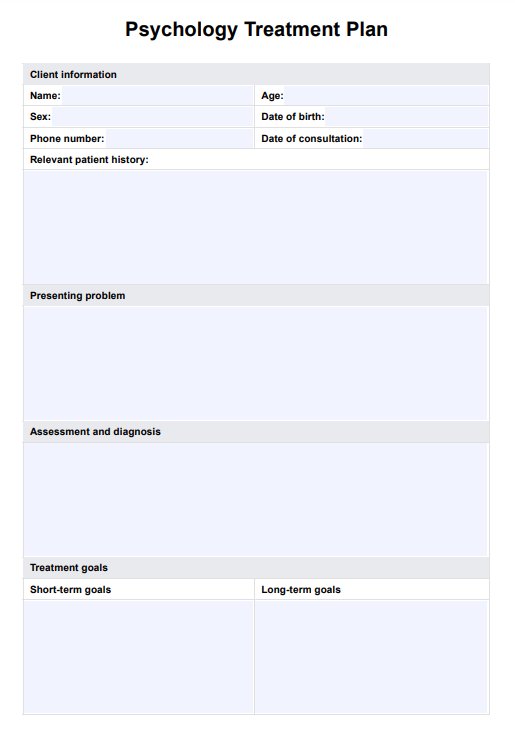A treatment plan in psychology is a structured document that outlines the goals, strategies, and interventions used to address a client's mental health concerns and achieve desired outcomes in therapy.

Psychology Treatment Plan
Craft a comprehensive Psychology Treatment Plan to address clients' mental health needs. Incorporate this in your toolkit for free!
Use Template
Psychology Treatment Plan Template
Commonly asked questions
Common types include cognitive-behavioral therapy (CBT), dialectical behavior therapy (DBT), person-centered, and psychodynamic therapy plans.
Yes. Family members can offer support and help reinforce coping strategies, making the treatment more effective and helping the client make better progress.
EHR and practice management software
Get started for free
*No credit card required
Free
$0/usd
Unlimited clients
Telehealth
1GB of storage
Client portal text
Automated billing and online payments











